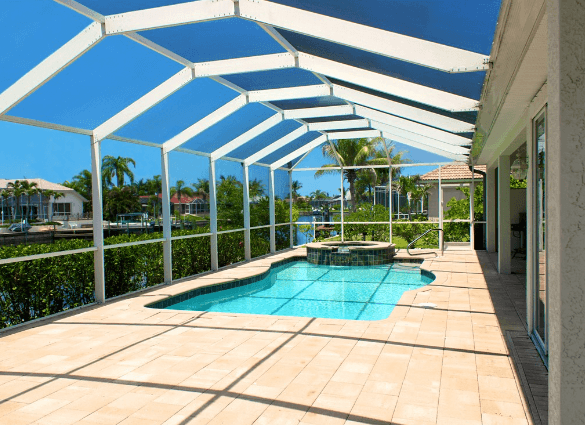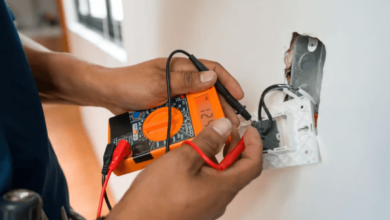Effective Screen Repair for Pool Enclosure in Titusville, Florida

When maintaining your pool, screen repair often gets overlooked. However, effective screen repair for pool enclosure in Titusville, Florida, is vital for the durability and functionality of your outdoor space. Thus, this blog explores specific and less commonly discussed aspects of screen repair, providing valuable information.
The Importance of Right Screen Repair for Pool Enclosure in Titusville, Florida
Firstly, the type of screen mesh you select is crucial for the longevity of your pool enclosure. For instance, standard fiberglass screens may not withstand the harsh weather conditions in Titusville, Florida. Instead, opting for high-quality mesh materials, such as stainless steel or coated aluminum, can significantly improve the screen’s durability. By choosing the proper mesh, you can decrease the need for frequent repairs and maintain the overall integrity of your enclosure.
See also: Discovering Local Delights and Scenic Views of Camano Island in Washington
How to Identify and Prevent Screen Rust
Rust is a common issue in pool environments, particularly in coastal areas like Titusville. Rust can weaken the structure of your screens, leading to more severe damage. To prevent rust, use screens made from rust-resistant materials. Applying protective coatings and regularly cleaning the screens can also help prevent rust formation. Early signs of rust, such as pitting or peeling, should be addressed promptly to avoid further issues.
Common Causes of Pool Screen Damage
Several common factors can cause damage to pool screens. Here are the main reasons:
Strong Winds
Strong winds are a major cause of screen damage. High gusts can stress and tear the screen materials, especially if the screens aren’t correctly secured. Over time, continuous exposure to strong winds can lead to obvious wear and tear on the enclosure.
Heavy Rain and Humidity
Heavy rain and high humidity can weaken screens. Moisture can cause a screen repair for pool enclosure in Titusville, Florida, to warp or become brittle, making them more prone to damage. Regular exposure to these conditions can accelerate the deterioration of the screen material.
UV Exposure
Intense sunlight and UV rays can degrade screen materials. UV exposure can cause screens to lose their elasticity, making them more susceptible to tearing. This degradation can lead to holes and gaps in the screen over time.
Pests and Animals
Pests and animals can also damage pool screens. Birds, insects, and small animals can peck, scratch, or chew on the screens, creating holes and tears. This damage can be particularly problematic as it might go unnoticed until it has caused substantial harm.
Physical Impact
Accidental physical impacts, such as those from thrown objects or heavy pool equipment, can also damage screens. These impacts can cause tears, scratches, or even breaks in the screen material, affecting its effectiveness and appearance.
Innovations in Screen Materials
Recent innovations have greatly improved the durability and functionality of pool screen materials. Advanced mesh fabrics, such as micro-mesh and stainless steel, offer better resistance to insects and environmental wear while allowing for improved airflow and visibility. Additionally, screen materials with UV-resistant coatings can better withstand the intense Florida sun, reducing degradation and extending their lifespan. Some new screens even feature self-cleaning properties, which minimize maintenance by repelling dirt and debris. These advancements ensure that modern pool enclosures are more durable, efficient, and visually appealing.
Screening Options for Increased Privacy Around Pools
For added privacy around pools, various screening options are available. Privacy screens, such as mesh panels, create a solid barrier that hides the view while still allowing air to circulate. Tall, dense hedges or privacy trees can also form a natural and attractive shield. Another option is installing frosted or tinted glass panels, which prevent visibility while maintaining elegance. Decorative bamboo screens provide a stylish and practical solution. Each option, whether natural or artificial, enhances privacy and improves the comfort and seclusion of the pool area.
Cost Factors in Screen Repair for Pool Enclosures
Cost is an essential factor in screen repair. Several elements, such as the size of the enclosure, the type of screen material, and the extent of damage, affect the overall cost. For example, repairing a large, intricate enclosure is usually more expensive than a smaller, simpler one. High-quality materials and professional services, like those from Zipper Flap, may come at a higher cost but often offer better value in the long run.
Conclusion
In conclusion, screen repair for pool enclosure in Titusville, Florida, is a complex process that goes beyond simple fixes. Understanding the importance of selecting suitable materials, recognizing common issues, and exploring different repair options can help maintain a functional and attractive pool enclosure. For expert services, Zipper Flap provides reliable solutions to meet your screen repair needs effectively. By regularly maintaining and timely repairs, you can keep your pool enclosure in excellent condition for years to come. Contact them now!




